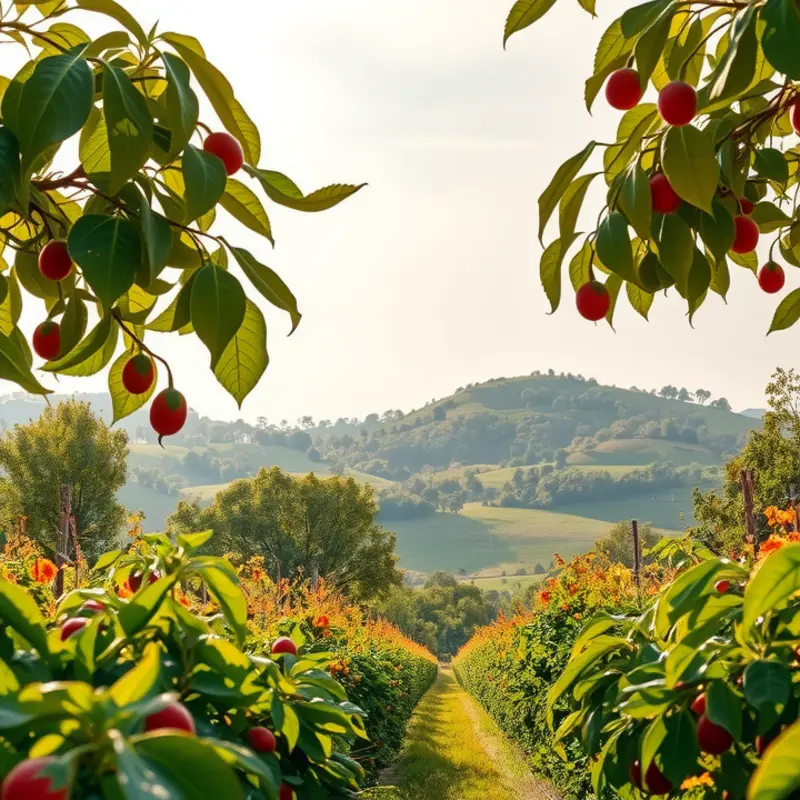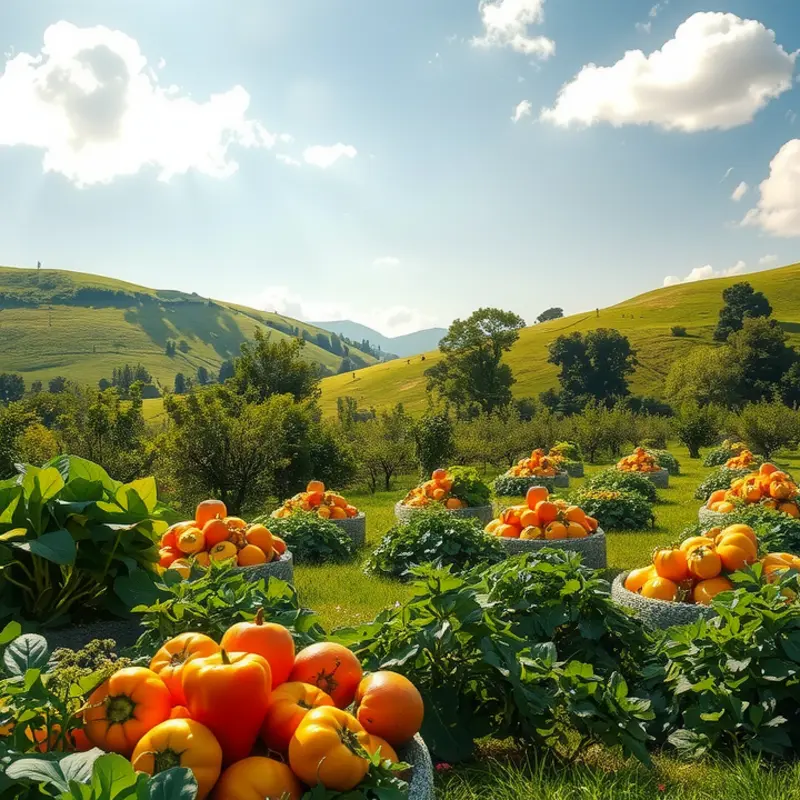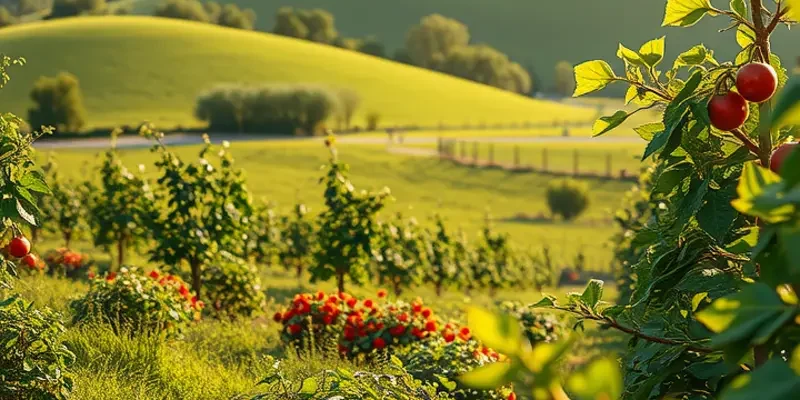The choice between organic and sustainable agriculture is pivotal for environmentally-conscious consumers. Both methods aim to promote health, biodiversity, and eco-friendliness, but they do so in subtly different ways. Understanding these differences is critical if you’re committed to making food choices that minimize harm to our planet. Let’s explore the features, benefits, and implications of each approach to empower you in your sustainable food journey.
Understanding Organic Agriculture

Organic agriculture prioritizes the health of both the environment and the consumer. It eliminates synthetic chemicals by substituting natural methods, fundamentally changing how we grow our food. By avoiding these chemicals, organic practices safeguard soil and water quality, ensuring crops develop in a clean and natural setting. This prohibition extends to herbicides, leaving farmers with sustainable methods such as crop rotation and physical weed removal.
Promoting soil fertility is central to organic farming. Rather than relying on artificial fertilizers, organic methods use natural processes to enrich the soil. Techniques like composting return essential nutrients to the soil, enhancing its structure and fertility. Cover cropping and crop rotation further prevent soil erosion and replenish macro and micronutrients essential for plant growth.
Biodiversity is another pillar of organic agriculture. By cultivating a variety of crops, organic farms create more resilient ecosystems. This biodiversity supports a wide range of species, including natural pest predators, which reduce the need for any pest control. Such ecosystems contribute to the pollination process, vital for many fruit and vegetable crops.
Organic farms also raise animals under humane conditions. Organic standards mandate that livestock must have access to outdoor spaces and be fed organic feed. These conditions not only support animal welfare but also lead to healthier animal products that are free from antibiotics and hormones.
Certification is a stringent aspect of organic agriculture. Regulatory bodies ensure that products labeled as organic meet rigorous standards. This process includes regular inspections and accountability measures, providing consumers with assurance about the organic integrity of their purchases.
Despite organic produce often being more expensive, many consumers find value in contributing to environmental health and supporting sustainable practices. As you explore alternatives in your diet, consider the eco-friendly impact of organic food choices. Organic agriculture emphasizes conservation and responsible resource use, making it a powerful ally in the pursuit of environmental sustainability.
For ways to incorporate organic ingredients into your meals, consider exploring creative recipes, such as using fresh produce in a Mediterranean chickpea salad.
The Sustainable Agricultural Approach

Sustainable agriculture seeks to meet food production needs without depleting resources for future generations. It operates on several key principles designed to balance productivity with ecological responsibility, making it an approach worth considering for those committed to eco-friendly food choices.
Resource Efficiency lies at the core of sustainable agriculture. This principle involves using resources optimally and minimizing waste. Techniques like crop rotation and precision farming contribute to efficient resource use by enhancing soil fertility and ensuring that water and energy are used judiciously. This efficiency reduces the ecological footprint of agricultural activities, playing a crucial role in environmental conservation.
Another significant aspect is the support of local economies. Patronizing local growers who adopt sustainable farming practices not only strengthens community ties but also curtails transportation emissions. When consumers buy locally sourced, sustainably grown produce, they reduce the carbon footprint associated with long-distance food transportation. This strategy promotes economic vibrancy within communities and facilitates direct connections between consumers and producers, fostering transparency and trust.
Soil and Water Conservation are emphasized through innovative techniques such as agroforestry and permaculture. Agroforestry incorporates trees into agricultural systems, enhancing biodiversity and soil health while providing shelter and food for various species. Permaculture designs mimic natural ecosystems, promoting a balanced and self-sustaining environment. Additionally, integrated pest management uses a combination of techniques to manage pest populations sustainably, reducing chemical inputs and preserving water quality.
Facing the challenges of climate change, sustainable agriculture promotes climate resilience. Adaptive strategies, such as planting diverse crops and using climate-smart practices, ensure farms can withstand climate variability. This resilience is vital for securing food supply and maintaining environmental stability, particularly as global weather patterns become increasingly unpredictable.
Finally, sustainable agriculture ensures holistic ecosystem health. Unlike organic farming, which focuses primarily on avoiding synthetic inputs, sustainable agriculture embraces scientific advancements that enhance productivity while safeguarding the environment. This approach integrates modern techniques with traditional practices, ensuring agricultural systems remain productive and environmentally sound.
Choosing sustainably grown food means endorsing practices that are committed not only to current human needs but also to the wellbeing of the planet. As consumers, making informed decisions about the food we purchase supports agricultural techniques that offer long-term benefits for ecosystems and societies. By opting for sustainable choices, we contribute to a more harmonious relationship with our environment and pave the way for future generations to enjoy its bounty.
Final words
By understanding the distinctions between organic and sustainable agriculture, you can make informed choices that align with your values. Both methods prioritize ecological health, yet they differ in techniques and scope. Organic practices emphasize chemical-free farming and animal welfare, while sustainable agriculture advocates for a broader view of resource management, community support, and adaptability to climate challenges. Embrace your role as a conscientious consumer: choose products that reflect your commitment to a healthier planet. Whether opting for organic or supporting local sustainable growers, each choice contributes to a brighter, greener future.








